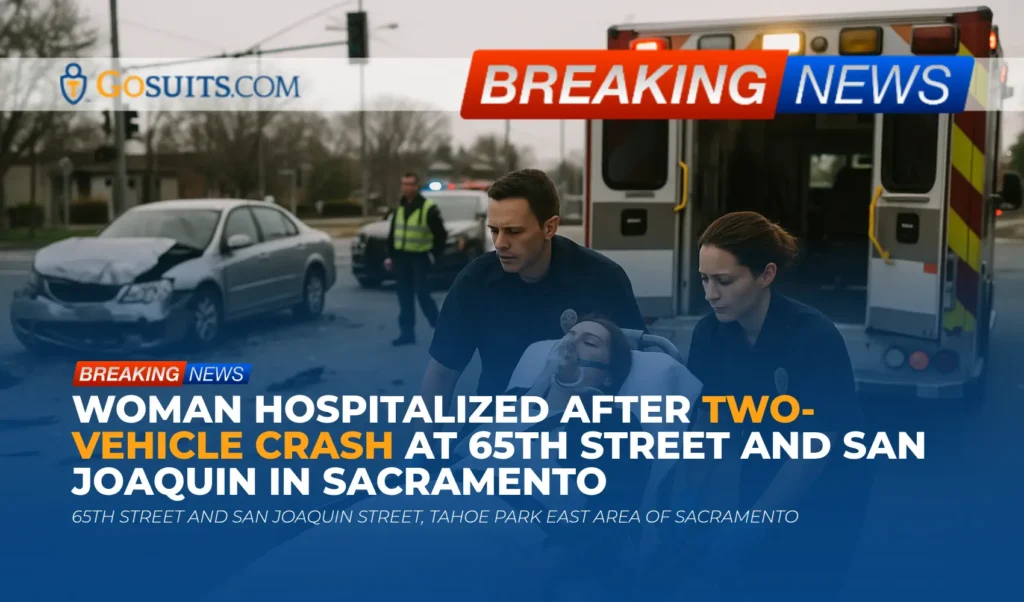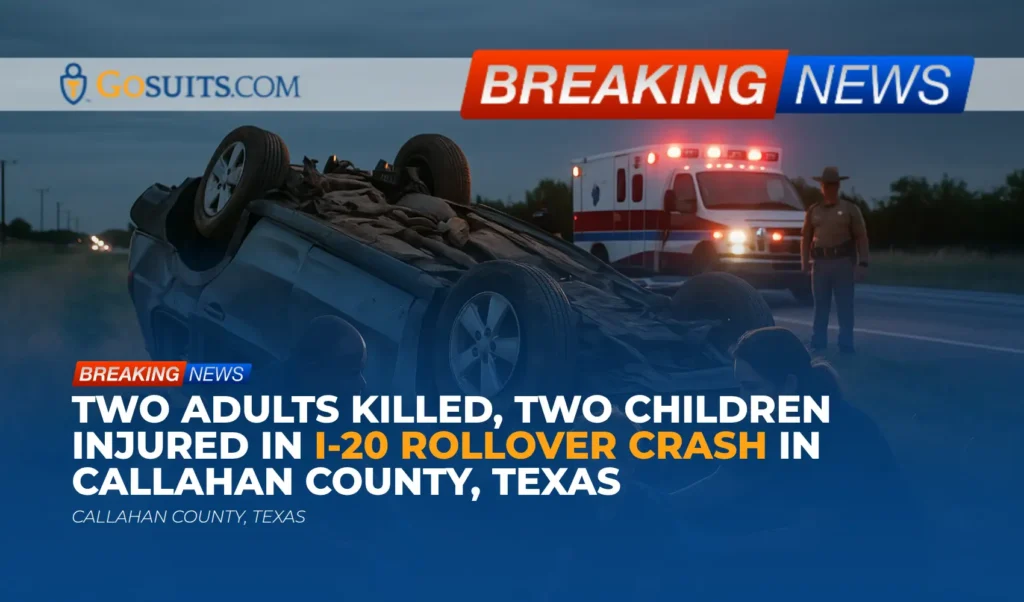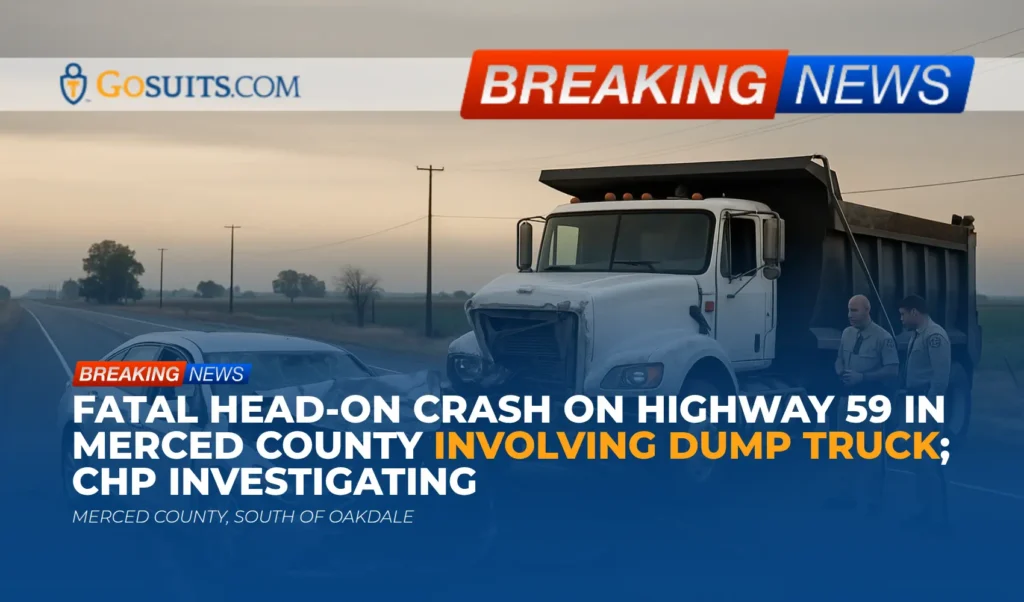Tragic Collision in Alto, Texas, Highlights the Devastating Consequences of Intoxicated Driving
A fatal collision in Alto, Texas, has once again brought the dangers of driving under the influence to the forefront. The incident, which occurred on Sunday at the intersection of U.S. 69 and FM 1911, resulted in the death of one woman and injuries to two others. The driver allegedly responsible for the crash has been arrested and faces multiple charges, underscoring the severe legal repercussions of intoxicated driving.
The Incident
According to the Alto Police Department, the collision occurred around 10:55 p.m. when a vehicle driven by Samuel Lee Schlemmer, 21, of Alto, allegedly ran a stop sign. Schlemmer’s vehicle collided with another car carrying three people. One passenger, Yvette Nicole McVey, 54, of Austin, tragically died as a result of the crash. The driver of the other vehicle, Kevin McGary, was treated and released from the hospital, while another passenger, Alesia Annette Sidney, 54, of Lufkin, remains hospitalized for her injuries.
Schlemmer has been booked into the Cherokee County Jail and faces charges of intoxication manslaughter with a vehicle, intoxication assault with a vehicle, unlawful carrying of a weapon, and disregarding a stop sign. His combined bond has been set at $355,000.
This devastating incident serves as a stark reminder of the potentially catastrophic consequences of driving under the influence of alcohol or drugs. Intoxicated driving not only endangers the driver but also puts the lives of passengers, other motorists, pedestrians, and the broader community at risk.
The Scope of the Problem: Drunk Driving Statistics
Driving under the influence remains a significant public safety issue in the United States. According to the National Highway Traffic Safety Administration (NHTSA), thousands of people are killed and injured each year in crashes involving impaired drivers. Despite ongoing efforts to raise awareness and enforce drunk driving laws, these preventable tragedies continue to occur.
The statistics surrounding drunk driving are alarming:
- Thousands of people are killed each year in alcohol-impaired driving crashes.
- Many more are injured in these types of accidents, often suffering severe and long-lasting consequences.
- Drunk driving crashes account for a significant percentage of all traffic fatalities.
- The economic cost of alcohol-related crashes is substantial, including medical expenses, lost productivity, and property damage.
Legal Consequences of Driving Under the Influence
Driving under the influence of alcohol or drugs is a serious offense that carries significant legal penalties. The specific consequences can vary depending on state laws and the circumstances of the case, but they often include:
- Criminal Charges: Drivers who are found to be operating a vehicle with a blood alcohol content (BAC) above the legal limit face criminal charges, such as driving while intoxicated (DWI) or driving under the influence (DUI).
- License Suspension or Revocation: A DWI or DUI conviction typically results in the suspension or revocation of the driver’s license, making it illegal to operate a motor vehicle.
- Fines: Substantial fines may be imposed as part of the penalty for a DWI or DUI conviction.
- Jail Time: Depending on the severity of the offense and prior convictions, jail time may be a possible consequence.
- Ignition Interlock Devices: In some cases, drivers convicted of DWI or DUI may be required to install an ignition interlock device in their vehicles. This device requires the driver to pass a breathalyzer test before the vehicle can be started.
- Increased Insurance Rates: A DWI or DUI conviction can lead to a significant increase in auto insurance premiums.

Civil Liability in Drunk Driving Accidents
In addition to the criminal penalties, intoxicated drivers may also face civil liability for the damages they cause in an accident. Victims of drunk driving accidents, or their families in the event of a fatality, have the right to pursue a personal injury claim or wrongful death lawsuit against the intoxicated driver.
A civil lawsuit allows victims to seek compensation for their losses, which may include:
- Medical Expenses: Costs associated with medical treatment, including hospital bills, doctor visits, physical therapy, and prescription medications.
- Lost Wages: Compensation for lost income due to time off work for medical treatment and recovery.
- Pain and Suffering: Damages for the physical pain, emotional distress, and mental anguish caused by the injuries.
- Property Damage: Costs to repair or replace damaged vehicles or other property.
- Punitive Damages: In some cases, punitive damages may be awarded to punish the drunk driver for their reckless conduct and deter similar behavior in the future.
- Funeral Expenses: In wrongful death cases, families may recover compensation for funeral and burial costs.
Proving Liability in a Drunk Driving Accident Case
To prevail in a personal injury or wrongful death lawsuit against a drunk driver, it is necessary to prove that the driver’s intoxication caused the accident and the resulting damages. Evidence that may be used to establish liability includes:
- Police Reports: The official police report, which often contains details about the accident, the driver’s BAC, and any citations issued.
- Witness Testimony: Statements from witnesses who observed the accident or the driver’s behavior before the crash.
- Blood Alcohol Content (BAC) Results: Evidence of the driver’s BAC at the time of the accident, which can be obtained through blood or breath tests.
- Field Sobriety Test Results: Results of field sobriety tests administered by law enforcement officers at the scene of the accident.
- Expert Testimony: Testimony from accident reconstruction experts or medical professionals who can analyze the evidence and provide opinions on the cause of the crash and the extent of the injuries.
Preventing Drunk Driving Accidents
Preventing drunk driving accidents requires a collective effort from individuals, communities, and law enforcement agencies. Some strategies for preventing these tragedies include:
- Designating a Sober Driver: Before going out, designate a sober driver who will not consume alcohol and will be responsible for driving everyone home safely.
- Using Ride-Sharing Services or Taxis: Utilize ride-sharing services or taxis as an alternative to driving after consuming alcohol.
- Calling a Cab or Sober Friend: If you have been drinking, call a cab or ask a sober friend for a ride home.
- Hosting Responsibly: If hosting a party, offer non-alcoholic beverages, ensure guests have a safe way to get home, and consider stopping alcohol service before the end of the event.
- Reporting Suspected Drunk Drivers: If you observe a driver who you suspect is impaired, contact law enforcement immediately.
The Importance of Seeking Legal Assistance
If you or a loved one has been injured in an accident caused by a drunk driver, it is crucial to seek the assistance of a seasoned Dallas Personal Injury lawyer. An attorney can help you understand your legal rights and options, investigate the accident, gather evidence, and pursue the compensation you deserve. They can also navigate the complex legal process and negotiate with insurance companies on your behalf.

Commentary from Gosuits Cherokee County, Texas Personal Injury Attorney
The tragic collision in Alto, Texas, resulting in a fatality and serious injuries, underscores the devastating consequences of drunk driving. The alleged actions of the driver in this case demonstrate a complete disregard for the safety of others and can lead to both criminal charges and civil liability.
In the aftermath of such a tragedy, victims and their families face immense challenges, including medical expenses, lost income, and emotional distress. It is important to understand that they have legal rights and may be entitled to compensation for their losses. A skilled personal injury attorney can provide guidance and advocacy, helping victims navigate the legal process and seek justice against those responsible for their injuries.






